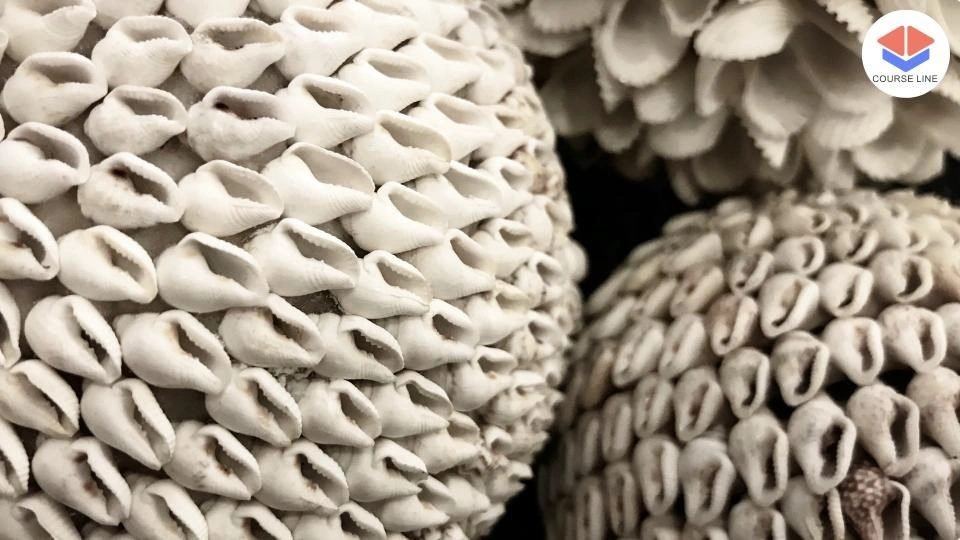Course Features
Price
Study Method
Online | Self-paced
Course Format
Reading Material - PDF, article
Duration
5 hours, 5 minutes
Qualification
No formal qualification
Certificate
At completion
Additional info
Coming soon
- Share
Overview
Ceramic materials are foundational to modern technology and industry, offering exceptional properties such as heat resistance, strength, and chemical stability. The Ceramic Materials Science Level 3 Advanced Diploma is tailored for learners seeking a comprehensive understanding of ceramic materials—from their atomic structure to real-world applications in engineering, healthcare, and electronics. This course provides both theoretical grounding and practical insight into how ceramics are developed, processed, and applied in high-performance environments.
The course begins with an introduction to ceramic materials, covering their classification, general properties, and core manufacturing methods. Learners will explore various types of ceramics, including traditional and advanced forms, and understand their role in modern material science. This foundation is followed by an in-depth study of the atomic and crystal structures of ceramics, as well as how defects and mechanical behaviour influence performance under stress and environmental conditions.
Processing techniques are a critical focus in this diploma. Students will learn about shaping, firing, sintering, and surface treatment methods that are central to transforming raw ceramic materials into usable products. Advanced ceramic processing, including precision engineering and the use of high-tech equipment, is also covered to prepare learners for real-world production and innovation.
A dedicated module on applications explores how ceramics are utilised in various industries. From structural components in aerospace and electronics to biomedical implants and medical tools, ceramic materials are essential to innovation. Learners will investigate current uses and future trends, gaining insights into the growing demand for advanced ceramics in cutting-edge technologies.
The environmental impact of ceramic production is also addressed, with lessons focused on sustainable sourcing, energy consumption, recycling, and life cycle assessments. This ensures that learners are aware of the environmental footprint and can contribute to greener manufacturing practices. The final module introduces learners to the research and development process in ceramic science, including materials testing, characterization techniques, and recent case studies showcasing technological breakthroughs.
This diploma not only builds scientific and technical competence but also encourages a forward-thinking approach to sustainable materials engineering, preparing learners to contribute meaningfully to innovation in the field of ceramics.
Who is this course for?
Ceramic materials are foundational to modern technology and industry, offering exceptional properties such as heat resistance, strength, and chemical stability. The Ceramic Materials Science Level 3 Advanced Diploma is tailored for learners seeking a comprehensive understanding of ceramic materials—from their atomic structure to real-world applications in engineering, healthcare, and electronics. This course provides both theoretical grounding and practical insight into how ceramics are developed, processed, and applied in high-performance environments.
The course begins with an introduction to ceramic materials, covering their classification, general properties, and core manufacturing methods. Learners will explore various types of ceramics, including traditional and advanced forms, and understand their role in modern material science. This foundation is followed by an in-depth study of the atomic and crystal structures of ceramics, as well as how defects and mechanical behaviour influence performance under stress and environmental conditions.
Processing techniques are a critical focus in this diploma. Students will learn about shaping, firing, sintering, and surface treatment methods that are central to transforming raw ceramic materials into usable products. Advanced ceramic processing, including precision engineering and the use of high-tech equipment, is also covered to prepare learners for real-world production and innovation.
A dedicated module on applications explores how ceramics are utilised in various industries. From structural components in aerospace and electronics to biomedical implants and medical tools, ceramic materials are essential to innovation. Learners will investigate current uses and future trends, gaining insights into the growing demand for advanced ceramics in cutting-edge technologies.
The environmental impact of ceramic production is also addressed, with lessons focused on sustainable sourcing, energy consumption, recycling, and life cycle assessments. This ensures that learners are aware of the environmental footprint and can contribute to greener manufacturing practices. The final module introduces learners to the research and development process in ceramic science, including materials testing, characterization techniques, and recent case studies showcasing technological breakthroughs.
This diploma not only builds scientific and technical competence but also encourages a forward-thinking approach to sustainable materials engineering, preparing learners to contribute meaningfully to innovation in the field of ceramics.
Requirements
Ceramic materials are foundational to modern technology and industry, offering exceptional properties such as heat resistance, strength, and chemical stability. The Ceramic Materials Science Level 3 Advanced Diploma is tailored for learners seeking a comprehensive understanding of ceramic materials—from their atomic structure to real-world applications in engineering, healthcare, and electronics. This course provides both theoretical grounding and practical insight into how ceramics are developed, processed, and applied in high-performance environments.
The course begins with an introduction to ceramic materials, covering their classification, general properties, and core manufacturing methods. Learners will explore various types of ceramics, including traditional and advanced forms, and understand their role in modern material science. This foundation is followed by an in-depth study of the atomic and crystal structures of ceramics, as well as how defects and mechanical behaviour influence performance under stress and environmental conditions.
Processing techniques are a critical focus in this diploma. Students will learn about shaping, firing, sintering, and surface treatment methods that are central to transforming raw ceramic materials into usable products. Advanced ceramic processing, including precision engineering and the use of high-tech equipment, is also covered to prepare learners for real-world production and innovation.
A dedicated module on applications explores how ceramics are utilised in various industries. From structural components in aerospace and electronics to biomedical implants and medical tools, ceramic materials are essential to innovation. Learners will investigate current uses and future trends, gaining insights into the growing demand for advanced ceramics in cutting-edge technologies.
The environmental impact of ceramic production is also addressed, with lessons focused on sustainable sourcing, energy consumption, recycling, and life cycle assessments. This ensures that learners are aware of the environmental footprint and can contribute to greener manufacturing practices. The final module introduces learners to the research and development process in ceramic science, including materials testing, characterization techniques, and recent case studies showcasing technological breakthroughs.
This diploma not only builds scientific and technical competence but also encourages a forward-thinking approach to sustainable materials engineering, preparing learners to contribute meaningfully to innovation in the field of ceramics.
Career path
Ceramic materials are foundational to modern technology and industry, offering exceptional properties such as heat resistance, strength, and chemical stability. The Ceramic Materials Science Level 3 Advanced Diploma is tailored for learners seeking a comprehensive understanding of ceramic materials—from their atomic structure to real-world applications in engineering, healthcare, and electronics. This course provides both theoretical grounding and practical insight into how ceramics are developed, processed, and applied in high-performance environments.
The course begins with an introduction to ceramic materials, covering their classification, general properties, and core manufacturing methods. Learners will explore various types of ceramics, including traditional and advanced forms, and understand their role in modern material science. This foundation is followed by an in-depth study of the atomic and crystal structures of ceramics, as well as how defects and mechanical behaviour influence performance under stress and environmental conditions.
Processing techniques are a critical focus in this diploma. Students will learn about shaping, firing, sintering, and surface treatment methods that are central to transforming raw ceramic materials into usable products. Advanced ceramic processing, including precision engineering and the use of high-tech equipment, is also covered to prepare learners for real-world production and innovation.
A dedicated module on applications explores how ceramics are utilised in various industries. From structural components in aerospace and electronics to biomedical implants and medical tools, ceramic materials are essential to innovation. Learners will investigate current uses and future trends, gaining insights into the growing demand for advanced ceramics in cutting-edge technologies.
The environmental impact of ceramic production is also addressed, with lessons focused on sustainable sourcing, energy consumption, recycling, and life cycle assessments. This ensures that learners are aware of the environmental footprint and can contribute to greener manufacturing practices. The final module introduces learners to the research and development process in ceramic science, including materials testing, characterization techniques, and recent case studies showcasing technological breakthroughs.
This diploma not only builds scientific and technical competence but also encourages a forward-thinking approach to sustainable materials engineering, preparing learners to contribute meaningfully to innovation in the field of ceramics.
-
- What are Ceramic Materials? 00:10:00
- Types of Ceramic Materials 00:10:00
- Properties of Ceramic Materials 00:10:00
- Manufacturing Processes for Ceramics 00:10:00
-
- Atomic Structure and Bonding in Ceramics 00:10:00
- Crystal Structures of Ceramics 00:10:00
- Defects in Ceramic Materials 00:10:00
- Mechanical Behavior of Ceramics 00:10:00
- Shaping and Forming Methods 00:10:00
- Sintering and Firing 00:10:00
- Surface Treatments of Ceramics 00:10:00
- Advanced Ceramic Processing 00:10:00
- Raw Materials and Sourcing 00:10:00
- Energy Use in Ceramic Production 00:10:00
- Recycling and Reuse of Ceramic Materials 00:10:00
- Life Cycle Assessment of Ceramic Materials 00:10:00
- Exam of Ceramic Materials Science Level 3 Advanced Diploma 00:50:00

Is this certificate recognized?
Yes, our premium certificate and transcript are widely recognized and accepted by embassies worldwide, particularly by the UK embassy. This adds credibility to your qualification and enhances its value for professional and academic purposes.
I am a beginner. Is this course suitable for me?
Yes, this course is designed for learners of all levels, including beginners. The content is structured to provide step-by-step guidance, ensuring that even those with no prior experience can follow along and gain valuable knowledge.
I am a professional. Is this course suitable for me?
Yes, professionals will also benefit from this course. It covers advanced concepts, practical applications, and industry insights that can help enhance existing skills and knowledge. Whether you are looking to refine your expertise or expand your qualifications, this course provides valuable learning.
Does this course have an expiry date?
No, you have lifetime access to the course. Once enrolled, you can revisit the materials at any time as long as the course remains available. Additionally, we regularly update our content to ensure it stays relevant and up to date.
How do I claim my free certificate?
I trust you’re in good health. Your free certificate can be located in the Achievement section. The option to purchase a CPD certificate is available but entirely optional, and you may choose to skip it. Please be aware that it’s crucial to click the “Complete” button to ensure the certificate is generated, as this process is entirely automated.
Does this course have assessments and assignments?
Yes, the course includes both assessments and assignments. Your final marks will be determined by a combination of 20% from assignments and 80% from assessments. These evaluations are designed to test your understanding and ensure you have grasped the key concepts effectively.
Is this course accredited?
We are a recognized course provider with CPD, UKRLP, and AOHT membership. The logos of these accreditation bodies will be featured on your premium certificate and transcript, ensuring credibility and professional recognition.
Will I receive a certificate upon completion?
Yes, you will receive a free digital certificate automatically once you complete the course. If you would like a premium CPD-accredited certificate, either in digital or physical format, you can upgrade for a small fee.
Course Features
Price
Study Method
Online | Self-paced
Course Format
Reading Material - PDF, article
Duration
5 hours, 5 minutes
Qualification
No formal qualification
Certificate
At completion
Additional info
Coming soon
- Share
IT Training Level 1
Course Line240£490.00Original price was: £490.00.£14.99Current price is: £14.99.Workplace Health and Safety Level 3
Course Line241£490.00Original price was: £490.00.£14.99Current price is: £14.99.Pharmacology Level 3 Advanced Diploma
Course Line237£490.00Original price was: £490.00.£14.99Current price is: £14.99.






Thanks you